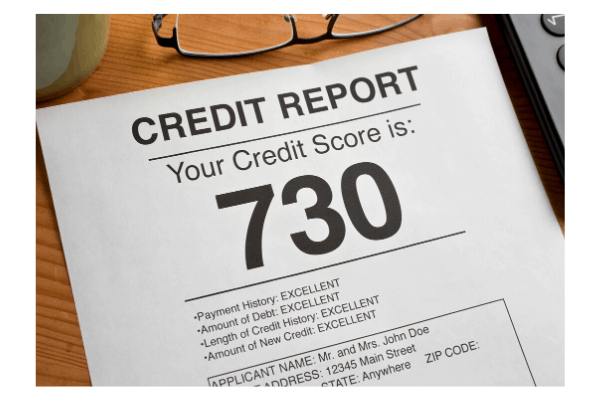Many people have only heard of the big three credit reporting agencies. But did you know there are 40 other smaller agencies that can collect information about you? Let’s learn about who they are and what information they collect about you.
Innovus, ChexSystems and Certegy are just three of the other 40 alternative credit reporting agencies. Equifax, TransUnion and Experian are the “Big Three” credit reporting agencies (CRAs) and where most lenders get their information. But the other 40 smaller specialized CRAs out there collecting information about consumers. These smaller CRAs, other than the big three, are verifying alternative credit, employment and banking information.
You also have a right to know what information they are collecting under the Fair Credit Reporting Act (FCRA).
Who Are The Big Three Credit Reporting Agencies
The big three credit reporting agencies are Equifax, TransUnion and Experian. Most lenders will pull a consumer credit report from any or all of the three agencies to determine if you qualify for their loan or credit card. They are the go-to agencies for most credit decisions in the US.
The big three are publicly traded companies and sell products and services on their websites. The information they provide to creditors is a large part of the lending decision and whether or not you can obtain credit.
You will want to monitor the information they are collecting about you on a regular basis. This is your right under the Fair Credit Reporting Act (FCRA). This way when you apply for a loan or credit card there are no surprises.
Who Are The Other CRAs That Collect Information About Me?
There are over 40 Credit Reporting Agencies in the US that are collecting information about you. Most of them are used for verifying employment and banking information. It is important to know about them in case you are ever denied employment, banking services or insurance.
Most of these companies fall under the Fair Credit Reporting Act. They must comply with any requests from you for the information they have collected about you. I am not going to list all 40. But I will give you some of the top agencies that you need to know about in order to manage your reputation.
LexisNexis Risk Solutions
We always suggest to consumers to check for errors in credit reports from the big three bureaus—Equifax, Experian and TransUnion. You also may want to add LexisNexis to the list of places to check.
I first heard of LexisNexis when I was hired in the banking industry. They are a reseller of credit reports from the big three credit bureaus but they also provide background information to banks, insurance companies and other companies who are looking for data about you.
How LexisNexis Can Damage Your Reputation
They can cost you a lot of money if the information is inaccurate. LexisNexis covers a wide variety of data on individuals so that businesses can make informed decisions on whether or not they want to take you on as a client or employee. Essentially, LexisNexis provides companies with a consumer risk file based on the information they have collected about you.
Banks will often go to LexisNexis when working with a small business who is looking for financing. I have seen them find out about debts that were never reported on the business owners credit reports.
Insurance companies can find out what incidences you have had in the past through LexisNexis. So if you apply for insurance down the road they will charge you a higher rate for these past occurrences. Mistakes do happen and it can cost you a lot of money. Often it is because two people with a similar name will have their files merged.
LexisNexis Dispute Process
LexisNexis does have a dispute process for those folks who have found inaccurate information on their files. But here is the rub, under the law you can not have access to all of the information they have on you.
Once you obtain your file and report the inaccuracies, it should be cleared up in a few weeks. Even if it does go smoothly it may be too late. If you need to have insurance under the law then you do not have time to rectify things. You may end up paying a much higher premium.
Innovis
Innovis is readily known as the 4th Credit Reporting Bureau. Some of what Innovis provides is identification verification data. This helps businesses with fraud detection and prevention and claims to improve customer relationships with businesses.
There are many businesses that use them in their client acquisition process to determine if they want to work with that client. They also report non-traditional credit like rent payments and utility bills. You can order your annual credit report from Innovis by mail, phone, online, or in person.
ChexSystems
If you have ever had a bank account, one you may already be familiar with is ChexSystems. They are a nationwide specialty consumer reporting agency and they fall under the Fair Credit Reporting Act. They accept information from banks on closed checking and savings account information.
In other words, if you close your bank account and owe the bank money then you will be reported to ChexSystems.
When you go to open a checking or savings account the bank’s computer system will automatically send your information to ChexSystems who will report back your banking information.
This is an important tool to banks. Checking accounts actually cost the bank money to service so they want to know you are not going to be irresponsible with overdrafts and then walk away without paying. If you have ever done this and left a bank with an overdrawn account, the bank will most likely report you to ChexSystems.
Once you are reported to ChexSystems it can be difficult to find a reputable bank to take you on as a customer. The bank I worked for was a “second chance” bank and as long as you did not owe them money they would allow you to open an account. So there is hope.
You can request your ChexSystems score by writing to the company on their form.
Certegy Check Services
If you have ever written a check at a retail store and it was denied, it may have been because of information obtained from Certegy Check Services. Certegy protects businesses from fraud and bounced checks.
Certegy maintains a database of your check-writing history. This helps the businesses that subscribe to their services decide if they will accept your check based on the information received from Certegy.
However, they only can obtain your information from the businesses that use their services. If you do not write a lot of checks then they most likely will not have much information on you.
You can request your free annual report from Certegy by phone or mail.
CoreLogic Credco
CoreLogic Credco is best known for providing a credit report called a Tri-Merge Credit Report or Residential Mortgage Credit Report (RMCR). It is a credit report that includes information from all three reporting bureaus. Mortgage lenders use this report because it is easier to read over three separate reports from the three bureaus. It essentially merges all of your credit files into one simple and easy to read the report. If you have an error on your tri-merge credit report.
In reviewing their information for this article I found that they also offer non-traditional credit information to lenders. This will help lenders to get information on credit invisible borrowers.
“An FCRA-compliant credit report that delivers verified non-traditional credit data for thin and no file applicants.”
CoreLogic, like LexisNexis, also mine information and data that is to be sold to people in the banking and real estate professions. They offer many different types of information so that businesses can make informed decisions.
You can obtain your consumer file from Credco to check for any errors that may appear.
As you can see there are many different companies keeping track of your data for credit and reputation purposes. It is important to understand how these systems work. The ones I have listed here all fall under the FCRA and you have the same rights with them that you do with the big three.
Pin it for later!


